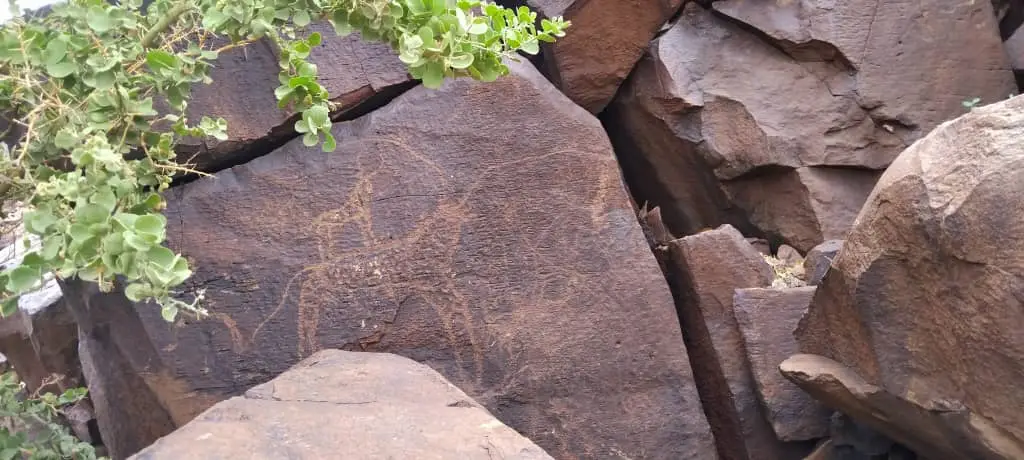
Hidden high in the rugged wilderness of Djibouti’s Goda Mountains lies one of the country’s most remarkable and least-visited cultural wonders: the Abourma Rock Art site. Accessible only by a moderately challenging 4-hour hike through rocky terrain and forested plateaus, Abourma rewards adventurous travelers with a surreal open-air museum — hundreds of ancient petroglyphs carved into black volcanic stone.These prehistoric carvings are estimated to be more than 2,000 years old, created by nomadic peoples who once roamed this now-remote region. The rock art spans nearly 3 kilometers and includes depictions of giraffes, antelope, cattle, camels, and humans — offering deep insights into the rituals, environment, and migrations of ancient civilizations that lived in this corner of the Horn of Africa.Unlike other rock art sites that are crowded or heavily reconstructed, Abourma remains untouched, remote, and completely authentic. It’s a rare chance to walk through history in silence, surrounded only by wind, rock, and the memories of a forgotten time.The hike itself is a highlight — weaving through Forêt du Day, one of Djibouti’s only forested zones, filled with endemic plant life and sweeping views of the surrounding escarpments. Knowledgeable local guides provide context to the art and ensure a safe and meaningful experience.This experience is not just a sightseeing stop; it’s a powerful journey into the cultural heritage of Djibouti, making it a must-see for history buffs, anthropologists, nature lovers, and serious trekkers alike. It's a living testament to Djibouti’s ancient human presence and one of the finest examples of archaeological travel in East Africa.For those seeking something truly off the beaten path, the Abourma Rock Art site offers a blend of cultural depth, adventure, and natural beauty that defines what makes Djibouti an emerging star in African eco-tourism and heritage tourism.


